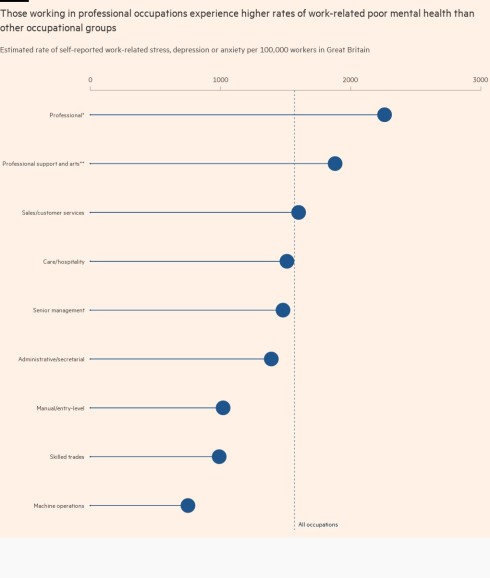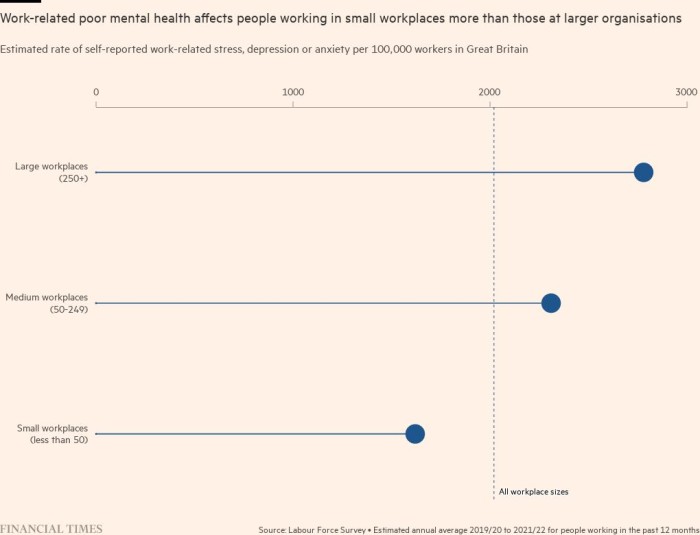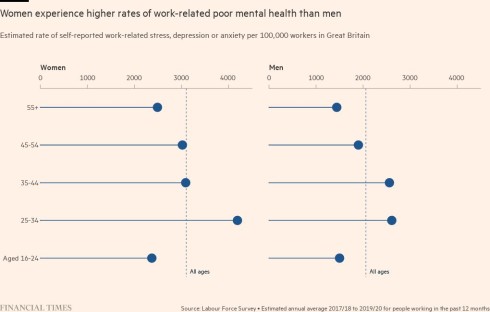Do you need the C-suite check-up?
It’s day two of the annual conference for the International Association of Microsoft Channel Partners EMEA, and the C-suite attendees are taking part in a group meditation. Having not met for three years, the IAMCP has decided to give half of its sessions over to nurturing the wellbeing of its staff. Gret Batchelar’s organisation, Conscious Working, is taking the lead on this. “To be successful you need to be equipped with strategic thinking that is rooted in compassion for yourself, your teams, the broader community and the planet,” she says. “This begins with self-awareness.”
Corporate wellbeing programmes of yesterday may have served some osteopathy, a gym membership and an annual health check, but that approach no longer cuts it. Even though “roughly $50bn is spent on wellness by businesses, it’s not making a jot of difference”, says Octavius Black, CEO of behavioural science company MindGym. With burnout and stress-related absence on the rise, businesses are having to contend with a complex range of employee mental-health issues.

As a result, they are having to rethink their wellbeing strategies – not only to support their staff, but to retain them. A recent Deloitte survey found nearly 70 per cent of leaders are considering quitting for a job that better supports their wellbeing, while 81 per cent of C-suite interviewees said improving their wellbeing is more important than advancing their career. One problem, says Batchelar, is that “HR teams come to us asking for wellbeing support, but don’t consider the C-suite as the employees”.

Less expensive – and probably a lot more fun – is Yeotown, the wellness retreat in north Devon that now runs programmes in Madeira. Stays are built around afternoons off so teams can spend a couple of hours back at work, but mornings and evenings are structured around mindfulness, meditation, massage, surfing, forest bathing… “Wellbeing stuff that used to be dismissed as a bit out there now has scientific backing,” says co-founder Simon Sieff. Recent clients include top executives from Goldman Sachs, the Young Presidents’ Association and Inhabit Hotels. Sieff says he has never once been called by an HR department. Instead, “Someone will come here recreationally, and then come back with their whole team.”
But if business leaders are really looking to get an edge, they need to consult Andres Roberts of Bristol-based Bio-Leadership Project. Working with firms like Patagonia, Natura & Co and Aviva, he leads small groups on “Nature Quests”, inspired by the vision quests in Native American cultures. “The first two days are a mix of slowing down – walks, wild swims, meditations – with work to open awareness and to connect with the world around you.” It’s essentially deep relaxation. “We do lots of this work around a fire, with good food, to make it feel like fun.” Then clients are taken into nature, left on their own with no food for 48 hours before being brought back to assimilate their experiences. “I’ve never ‘heard’ myself in that way” was the verdict of one recent alumnus.

“The paradigm for leadership is shifting from people who want to be at the top of the pyramid to the centre of the circle,” notes Chris Connors, a meditation teacher and “embodiment coach” who has worked with executives at Kering and LVMH, Net-a-Porter and YOOX. He believes what is defining this next generation of leaders “is not a big cheque, not only physical and emotional intelligence, but spiritual intelligence. This doesn’t mean acting like a yogi – but having high levels of self-awareness. Because then you’re able to understand what your ego is doing, what your unconscious is doing, what’s driving you into difficult things and what can get you out of them. It’s about knowing yourself.”

Jim Ratcliffe, the founder of chemical company Ineos, is one such leader. He took on the job of improving the wellbeing of his staff after the fatal heart attacks of two close colleagues in 2007. But rather than take the team on wellbeing offsites, he built it into the company ethos. Resilience trainers CorPerformance were brought in and, 15 years on, the wellbeing programme is now intrinsic to company culture. Using data measurement and tracking tools, CorPerformance sets bespoke lifestyle and fitness goals for each member of staff (on a voluntary basis). “For one person it might be a marathon, for another it might be taking the dog for a walk,” says group operations director Simon Laker. “Then we track how you respond to it – it’s an iterative process, with genetics and other factors playing their part.” In 2022, 1,870 of the company’s 25,000 staff competed in the company’s Tour de France challenge (where teams complete different stages of the race); “countless” others do marathons; and there is a 320km running, cycling and hiking trip across Namibia. “A lot of our work is on deals which go on for months – it can be hugely stressful. Our people are the best at sustaining that level of work now, because to do that you’ve got to be fit,” says Laker.
“Stress and resilience was all HR departments used to want to hear about. Now it’s mental health and performance,” adds CorPerformance’s founder Fred Wadsworth. “What is increasingly recognised is the power of general wellness in mental performance.” CorPerformance and Ineos have set out to prove that, with the right wellbeing support, you can transform employees. “Most executives are sitting or lying for more than 20 hours a day,” says Wadsworth. “We were originally persistent hunters, not sitting around industrialised workplaces. Because the body and mind are so affected by each other, you end up with disordered mood states.”
This story originally appeared on: Financial Times - Author:Tiffanie Darke

























